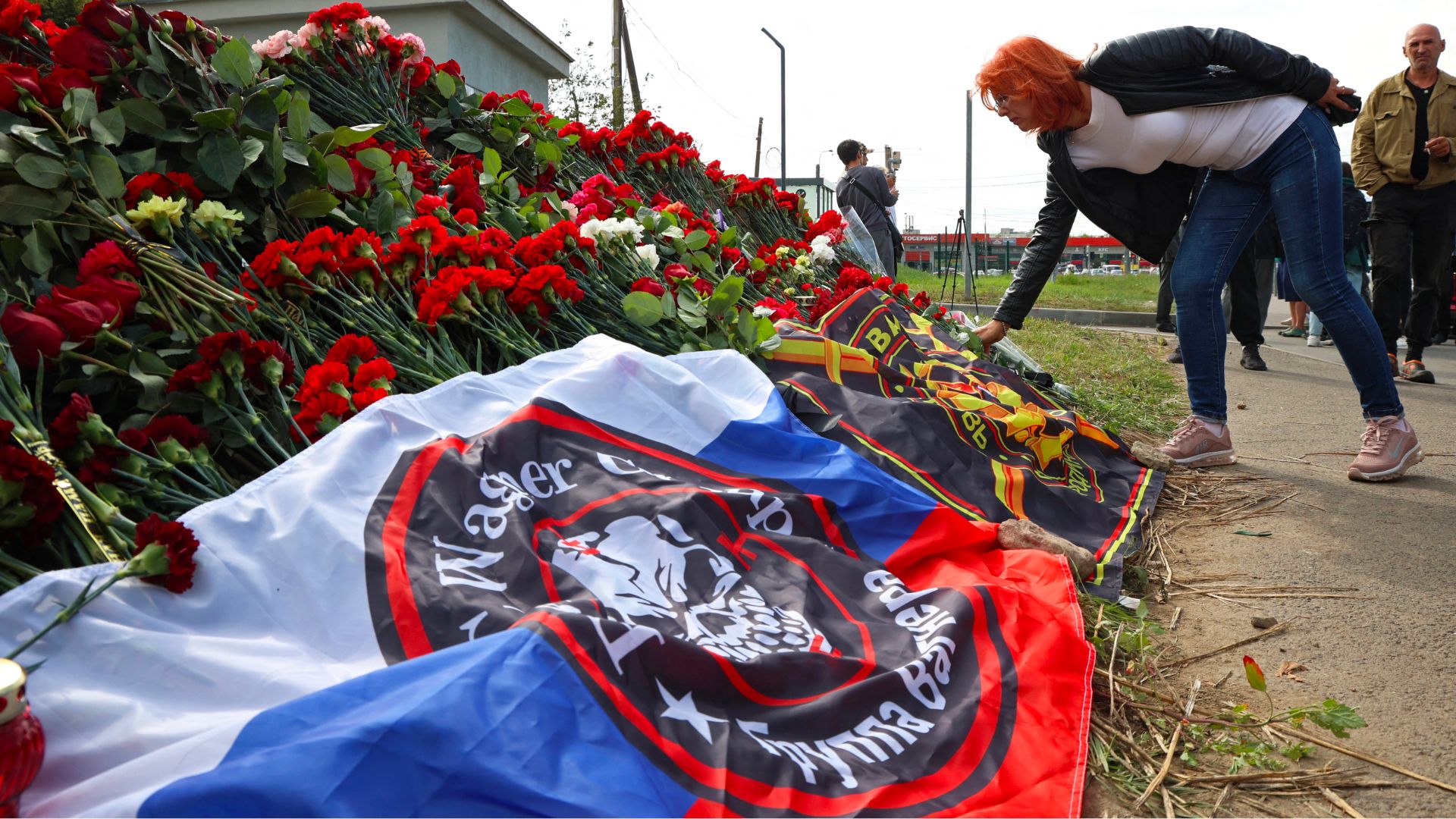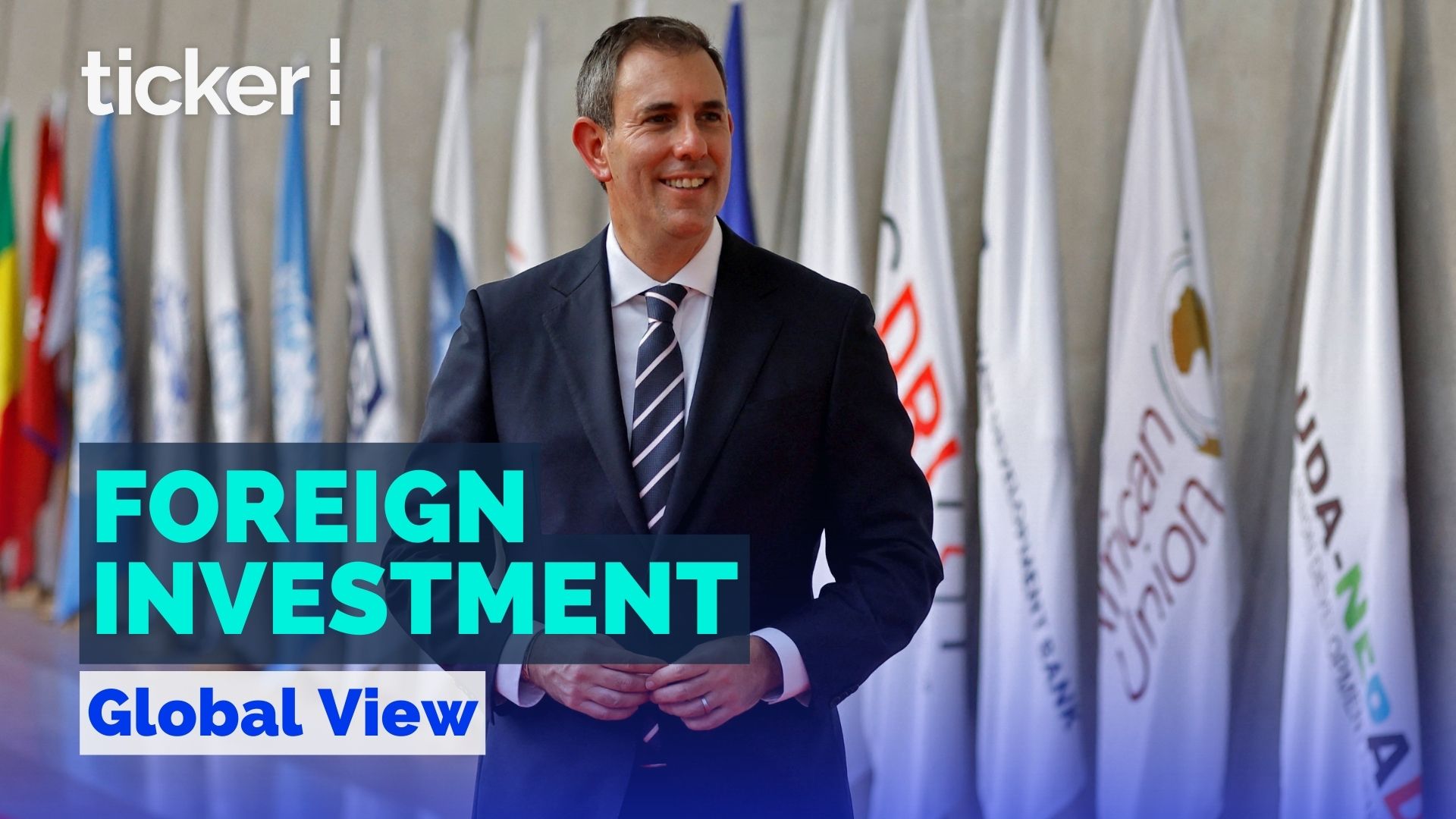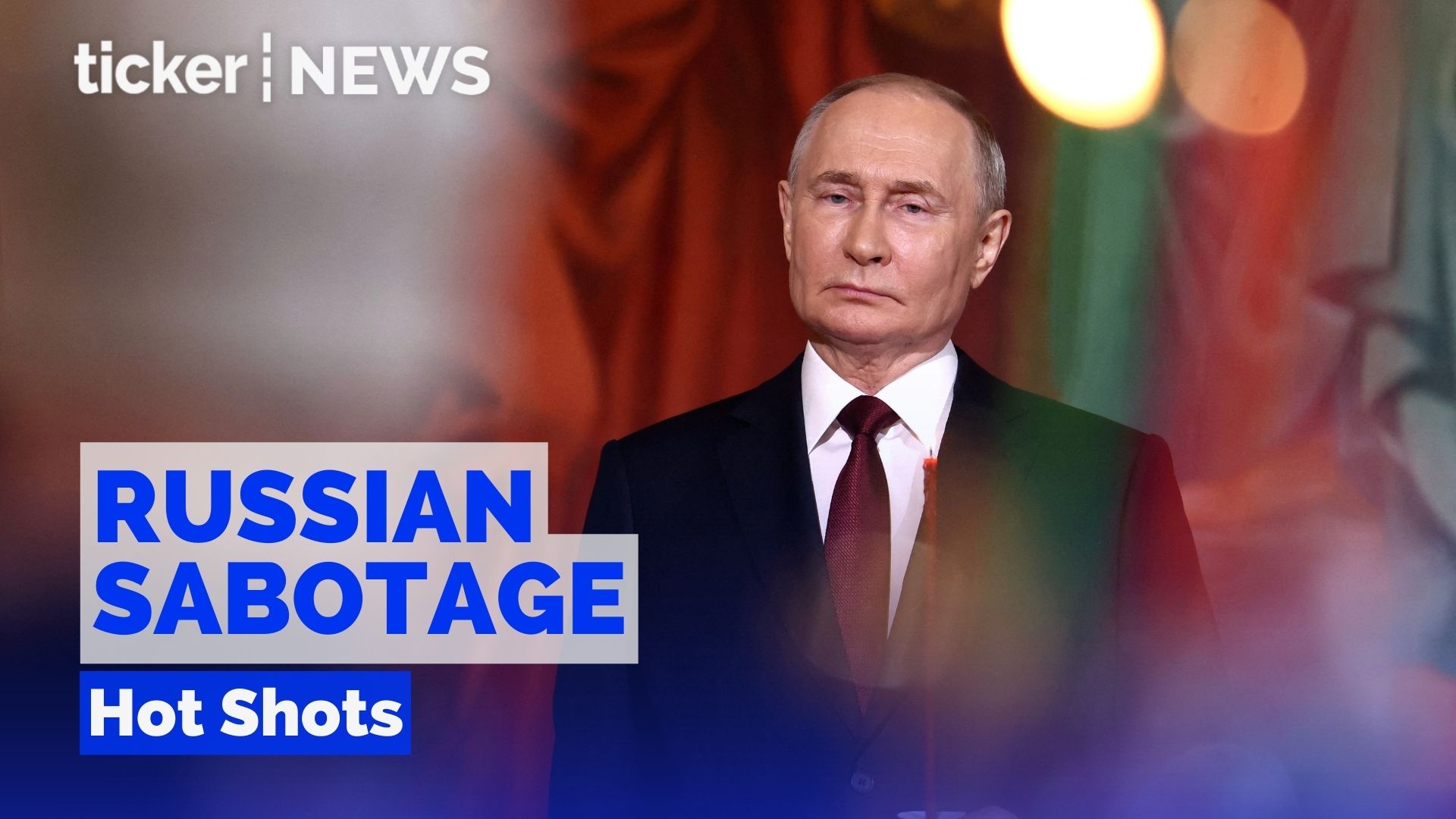Yevgeny Prigozhin, the enigmatic figure at the helm of a powerful Russian mercenary group, was quietly laid to rest on the outskirts of St. Petersburg on Tuesday.
His burial came six days after a baffling plane crash claimed his life, marking an end to a life of dominance and controversy.
The Kremlin announced on Tuesday that President Vladimir Putin would not be in attendance at the funeral.
Contrasting with the flamboyant persona he cultivated while alive, Prigozhin’s funeral unfolded in an understated manner, away from the prying eyes of the media.
The ceremony was in stark contrast to the audacious self-promotion that had characterised Prigozhin’s reputation, both in Russia and internationally, for his ambition and ruthlessness.
A terse message on his press service’s Telegram channel announced the private farewell: “The farewell to Yevgeny Viktorovich took place in a closed format. Those who wish to say goodbye may visit Porokhovskoye cemetery.”
The fatal plane crash, which occurred on August 23, claimed Prigozhin’s life along with two top Wagner group associates and four bodyguards. The Embraer Legacy 600 private jet they were aboard crashed to the north of Moscow, with the circumstances surrounding the crash remaining shrouded in mystery.
Tragically, Prigozhin’s death came exactly two months after his brief uprising against the Russian defence establishment, which posed one of the most significant challenges to President Vladimir Putin’s rule since his ascent to power in 1999.
Images and footage released by Reuters on Tuesday depicted Prigozhin’s resting place adorned with flowers in the serene Porokhovskoye cemetery. Law enforcement officers and members of the Rosgvardiya national guard were observed in the vicinity.
A cemetery staff member shared details of the restrained ceremony, noting that only 20 to 30 friends and family attended, and the entire event lasted a mere 40 minutes.
In an unexpected development from Washington, White House press secretary Karine Jean-Pierre made a bold assertion regarding the potential involvement of Russian President Vladimir Putin in Prigozhin’s demise. She stated, “We all know that the Kremlin has a long history of killing opponents. It’s very clear what happened here.”
The clandestine nature of the funeral precluded it from becoming a large-scale display of support for Prigozhin, a polarising figure who garnered a degree of admiration within Russia for committing his forces to the most intense battles during the Ukrainian conflict. He was also known for openly criticising the Russian military and leadership.
Leading up to the burial, admirers had assembled impromptu memorials adorned with flowers in Moscow, St. Petersburg, and other locations.
The Kremlin vehemently denied claims that Putin orchestrated Prigozhin’s demise in retaliation for the mutiny staged in June.
After months of brazenly criticising Putin’s top brass and openly condemning their handling of the Ukrainian war, Prigozhin seized control of the city of Rostov in late June.
His forces downed multiple Russian aircraft and advanced menacingly toward Moscow before halting their progress just 200 km (125 miles) from the capital.
What initially painted Prigozhin as a traitor who might plunge Russia into civil war eventually led to a negotiated resolution with Putin to defuse the crisis.
The day following the fatal crash, Putin conveyed condolences to the families of the victims and acknowledged his long-standing acquaintance with Prigozhin, dating back to the tumultuous early 1990s.
Putin characterised Prigozhin as a man marked by a challenging destiny and notable life mistakes, while also acknowledging his business acumen.
Prior to the uprising, Prigozhin humorously suggested that he should be known as “Putin’s butcher” instead of “Putin’s chef,” a nickname derived from his catering company’s contracts with the Kremlin.
Despite his loyalty to Putin, Prigozhin openly criticised Defense Minister Sergei Shoigu, even going as far as to suggest he should be executed for his perceived betrayal.
In the wake of Prigozhin’s demise, Putin issued an order for Wagner fighters to pledge allegiance to the Russian state—a step that Prigozhin had contested due to his resentment towards the defence ministry’s handling of the Ukrainian conflict.
Genetic testing confirmed the identities of all 10 individuals who lost their lives in the plane crash, which included two pilots and a flight attendant.
Earlier on Tuesday, the funeral of Wagner logistics head Valery Chekalov took place at another cemetery in St. Petersburg.
Attendees included numerous individuals identified as Wagner mercenaries and employees from Prigozhin’s expansive business empire.
A Russian Orthodox priest presided over Chekalov’s burial, offering prayers and swinging a censer as mourners came forward to pay their respects.
With Prigozhin’s passing, uncertainty looms over the future of his substantial business empire, encompassing mercenary operations across various African countries where he secured significant mining agreements for precious metals and diamonds.
His influence also played a role in advancing Russian security interests in competition with global powers like France and the United States.



 Shows1 day ago
Shows1 day ago


 News1 day ago
News1 day ago


 News4 days ago
News4 days ago


 Leaders1 day ago
Leaders1 day ago


 Leaders1 day ago
Leaders1 day ago


 Money5 days ago
Money5 days ago


 Money4 days ago
Money4 days ago


 News4 days ago
News4 days ago





